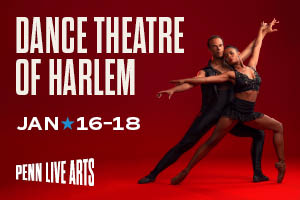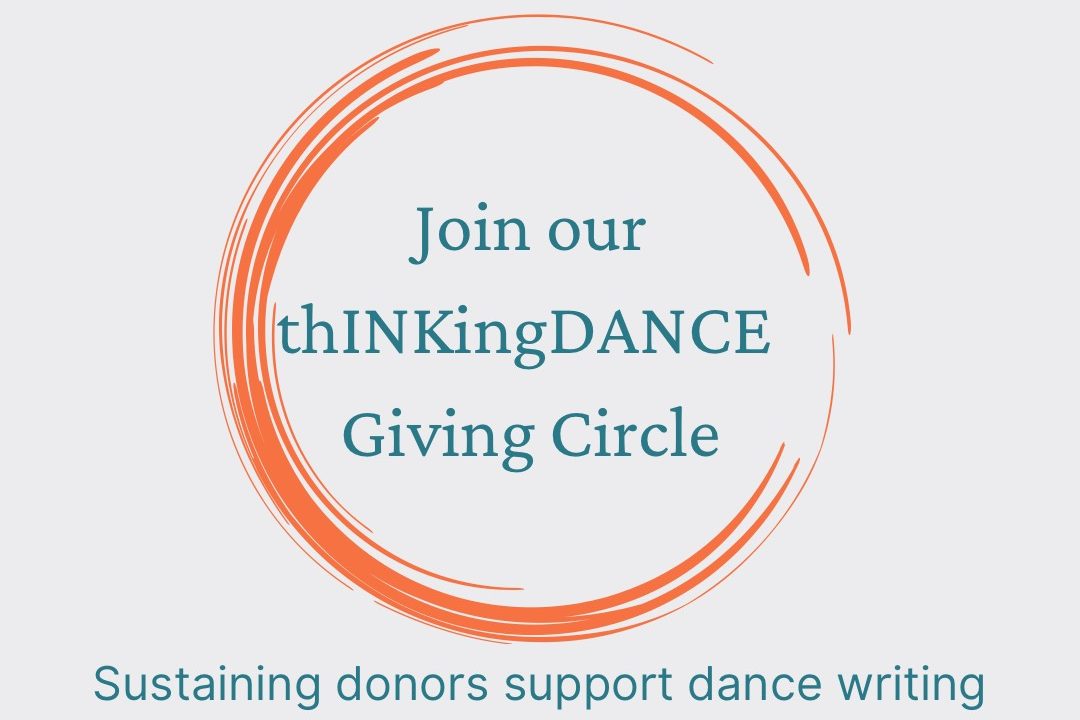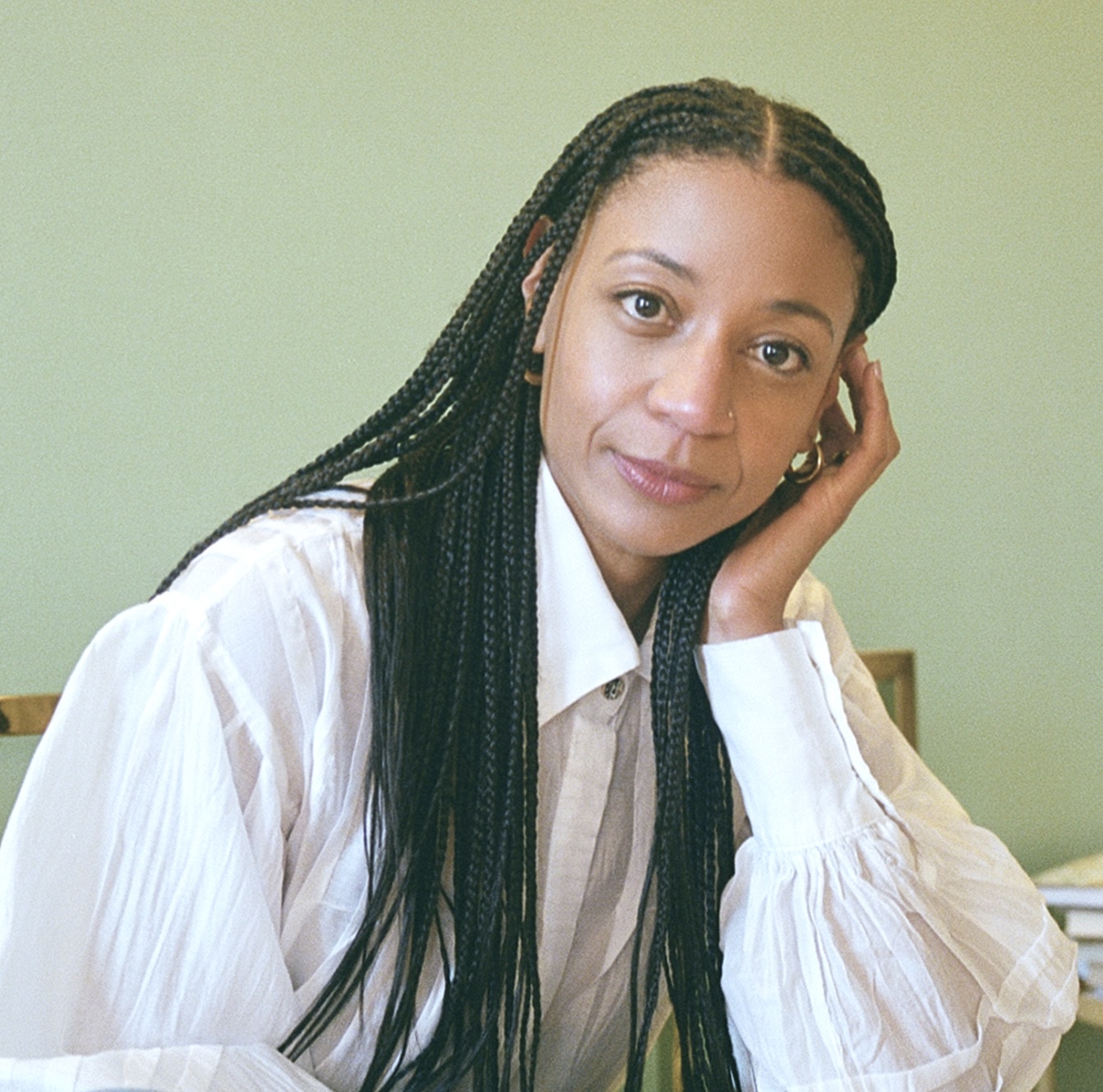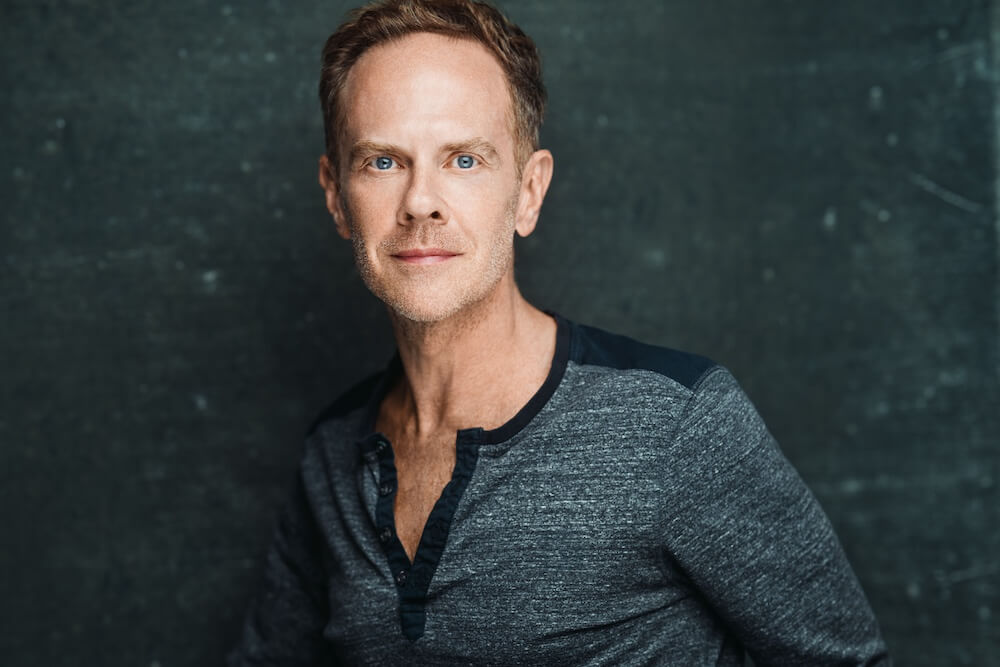As I write from the safety of my apartment, I am processing the immensity of the seismic changes that have happened over the last couple of months, and really well before. I am living in an altered temporality. Time is passing, somehow both geologically and digitally all at once. I am existing alongside primordial soup, ancestors, my immediate family who I worry about constantly, and the computer binary pervading every moment of my social and professional life day in, day out on Zoom and Gmail. As a performance-based artist, existing with an acute awareness of time isn’t new, but COVID-19 time is obviously uncharted territory.
At this very moment, I was scheduled to perform in a new live-performance work by Thomas Choinacky*. Forehand Down the Line was originally scheduled for March 27-29 at the Arden Hamilton Family Arts Center with an ensemble that includes myself, Shizu Homma, Mal Cherifi, Alexandra Espinoza, and Azariah Baker. The design team includes Adriano Shaplin, Carmel Brown, and Michael Lambui with stage management by Leslie Ann Boyden.
It is an especially ambitious project for Choinacky, as a self-producer and lead artist, to engage this number of artists and to mount the full production in the Arden with no institutional support. On top of the project’s scope, its subject matter is a long-term labor of love for Choinacky— tennis and Queering this sport’s narrative. The protagonists of the work, the five ensemble members, all portray the ball people responsible for keeping the game going while never drawing attention to themselves. There were to be no tennis stars, nor tennis players at all, in this full-length dance fantasia.
This narrative was exactly the one I wanted to throw myself into as a performer, it felt so affirmative to perform as a dancer in my own imperfect skin in a work about tennis with no tennis players. Just like everything else as we knew it, this project was ripped out of us in a blink, right as it was about to congeal into something that felt special.
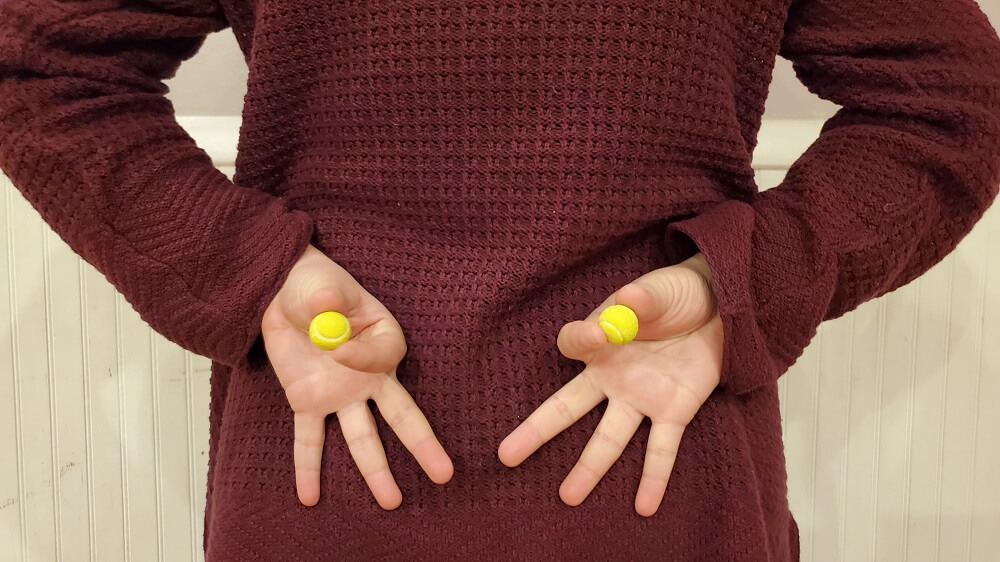
In the midst of processing and grieving, I reached out to Choinacky about capturing this moment in writing. I have full faith that the project has a future life, but I anticipate that Thomas will change in response to COVID-19. I know I already have. For the sake of creating an archival document of this moment in history (a pursuit both he and I are interested in as an artistic provocation), I have edited our conversation to inform you today, in 2020, but with the intention that readers will learn from us in 2120, as well.
Thomas Choinacky: Shizu compared the process of postponing Forehand to the film Blade Runner. Every delay means that more is possible.
Mira Treatman: So now you have all of this new-found time. What do you think you’ll do with it?
TC: I plan to continue using the originally planned rehearsal time for re-cataloguing our work. When I return to the project it will be a new starting place. There were two weeks left when COVID-19 hit. I don’t know for certain if the same ensemble members will be available when we resume.
MT: You’ve mentioned that this particular ensemble is significant to your process.
TC: Just being in that room was so exciting. We were going to spend the last few weeks of the process leading up to opening night on how to truly highlight each individual performer within the theatrical world. That was the hardest part—pressing pause on this process.
MT: I was so curious about that, too!
TC: I work best under deadline. At the moment where we paused there were still so many unknowns. That final rehearsal was baffling.
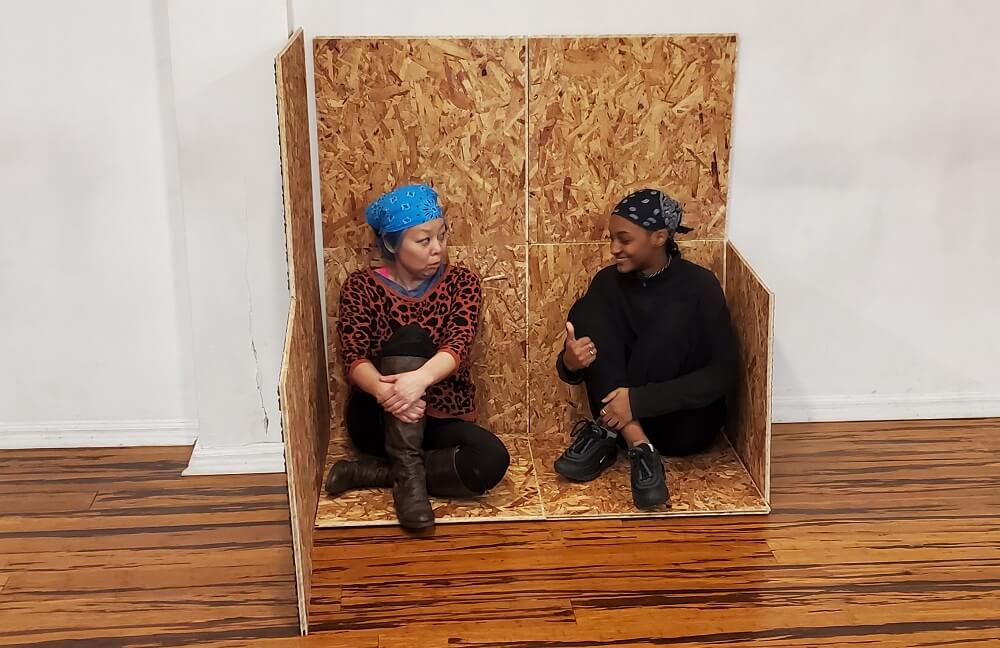
TC: My practice is relational. It’s about convening. Even my solo work is always about gathering in one form or another. During this time, I’m still trying to make an effort to do this. I reach out to colleagues for Zoom meetings. Applied Mechanics, where I’m a founding member, still has “Happy Hour” every week.
MT: You’ve mentioned that we as performers wouldn’t be able to bring our “fullest selves” to the event had we proceeded. What do you mean by this exactly?
TC: We must be able to touch and move fully to execute this project fully: multiple bodies interacting with multiple surfaces. The concern and panic around social distancing is not part of the work. I don’t want to put it on the Internet either. Art is an invitation. If not everyone can participate, then it isn’t that. I am always working to avoid exclusion.
MT: I wonder what the world will be like when it’s finally safe for us to resume production of Forehand. What will feel normal?
TC: Assuming things go back to “normal,” I wonder what it would mean to practice social distancing for a finite amount of time each year.
MT: Wow! I think that’s how Philly Free Streets got started, after the seemingly major interruption caused by the Pope’s visit in 2015.
TC: Humans keep claiming all of the planet as ours. This is a capitalist lie! We don’t own anything. We need to share with other species. Climate deniers who don’t believe in science suddenly are being confronted with their belief system. They’re forced to stop just like the rest of us, do less and see the cause and effect, evidence of science.
MT: What do you think the future holds for you and your work now? If you had to summarize. I know it’s hard to think toward the future right now.
TC: I am making a piece based on my artistic archive. An archive of archives, so to speak. I’m working with Zandra Espinoza on this project, too.
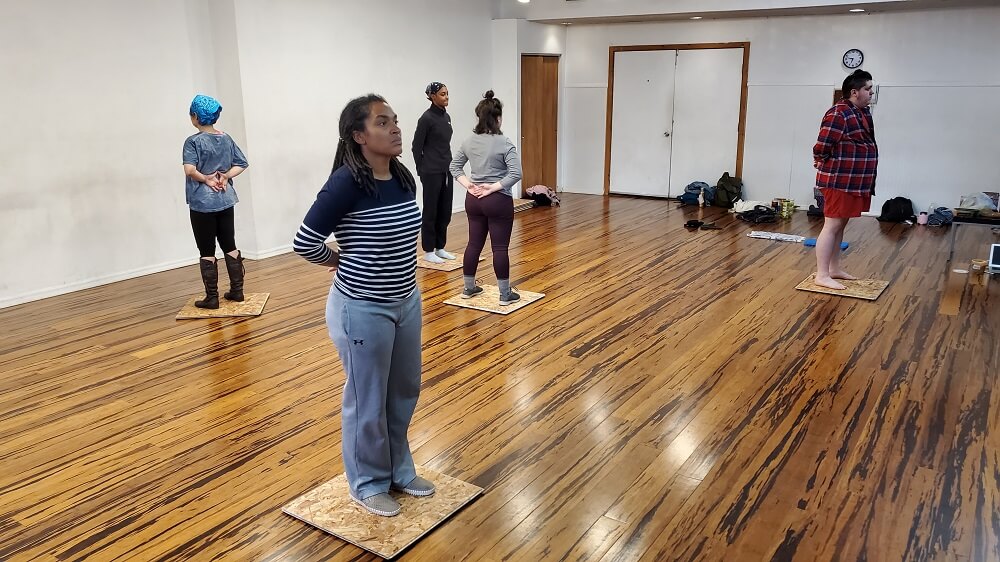
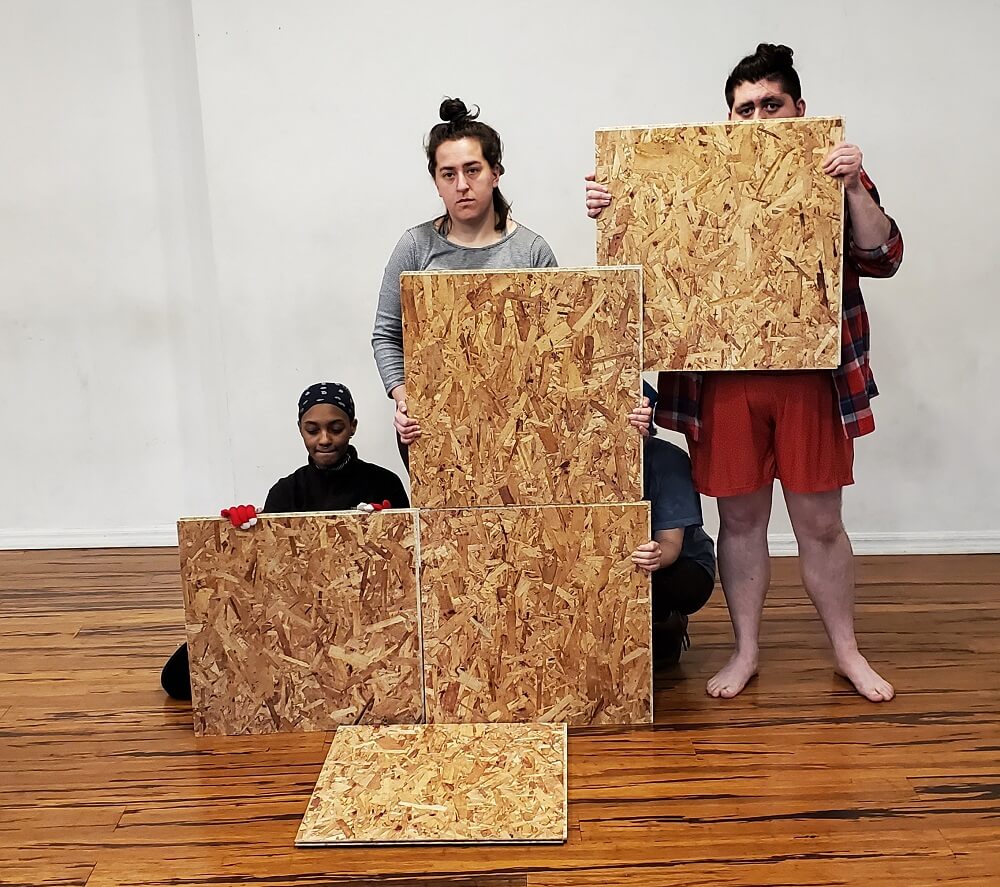
Forehand Down the Line was postponed two weeks prior to opening, on March 14, just three days after COVID-19 was declared a global pandemic. We had one last rehearsal that week knowing with some certainty this might be our last time together for a while as an ensemble. Thomas offered us many improvisational scores to play with that day. The one that stands out to me now is the spatial exploration of our bodies in relation to plywood flooring, tennis balls, and most importantly, to each other. Thomas engaged us further by putting on a recording of Tina Turner singing “River Deep, Mountain High.”
The refrain feels like a fitting way to capture this liminal moment of being so deep in a creative process that was abruptly halted right when it was coming into bloom, in the dawn of spring.
‘Cause it grows stronger, like a river flows
And it gets bigger baby, and heaven knows
And it gets sweeter baby, as it growsAnd do I love you my oh my
Yeah river deep, mountain high
If I lost you would I cry
Oh, how I love you baby
Interview with Thomas Choinacky by Mira Treatman, conducted via Zoom, March 19.
*Thomas Choinacky is a thINKingDANCE writer.


